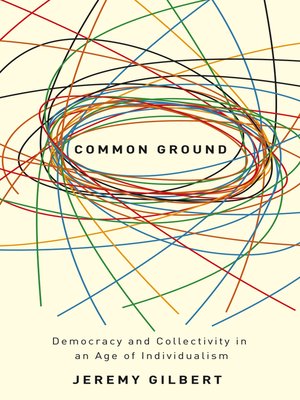
Sign up to save your library
With an OverDrive account, you can save your favorite libraries for at-a-glance information about availability. Find out more about OverDrive accounts.
Find this title in Libby, the library reading app by OverDrive.



Search for a digital library with this title
Title found at these libraries:
| Library Name | Distance |
|---|---|
| Loading... |
Under neoliberalism the cult of individualism reigns supreme, forced upon us through culture, media and politics, it fatally limits our capacity to escape the current crisis of democratic politics. In Common Ground, Jeremy Gilbert asks us to reimagine the philosophical relationship between individuality, collectivity, affect and agency, proposing a radically non-individualist mode of imagining social life.
The book considers how opponents of neoliberal hegemony, and of the individualist tradition in Western thought, might protect collective creativity and democratic possibility. Examination of the historical roots of individualism's "Leviathan logic" and fresh readings of theorists such as Hobbes, Lazzarato, Simondon, Lyotard, Laclau and Deleuze and Guattari, force us to confront longstanding assumptions about the nature of the individual and of collectivity. Exploration of this fundamental faultline in contemporary politics is accompanied by analysis of the different ideas and practices of collectivity, from conservative notions of hierarchical and patriarchal communities to the politics of 'horizontality' and 'the commons' which lie at the heart of radical movements today. Through an understanding of the philosophy shaping contemporary relations and disrupting hegemonic values, we can re-imagine the present moment.
The book considers how opponents of neoliberal hegemony, and of the individualist tradition in Western thought, might protect collective creativity and democratic possibility. Examination of the historical roots of individualism's "Leviathan logic" and fresh readings of theorists such as Hobbes, Lazzarato, Simondon, Lyotard, Laclau and Deleuze and Guattari, force us to confront longstanding assumptions about the nature of the individual and of collectivity. Exploration of this fundamental faultline in contemporary politics is accompanied by analysis of the different ideas and practices of collectivity, from conservative notions of hierarchical and patriarchal communities to the politics of 'horizontality' and 'the commons' which lie at the heart of radical movements today. Through an understanding of the philosophy shaping contemporary relations and disrupting hegemonic values, we can re-imagine the present moment.







